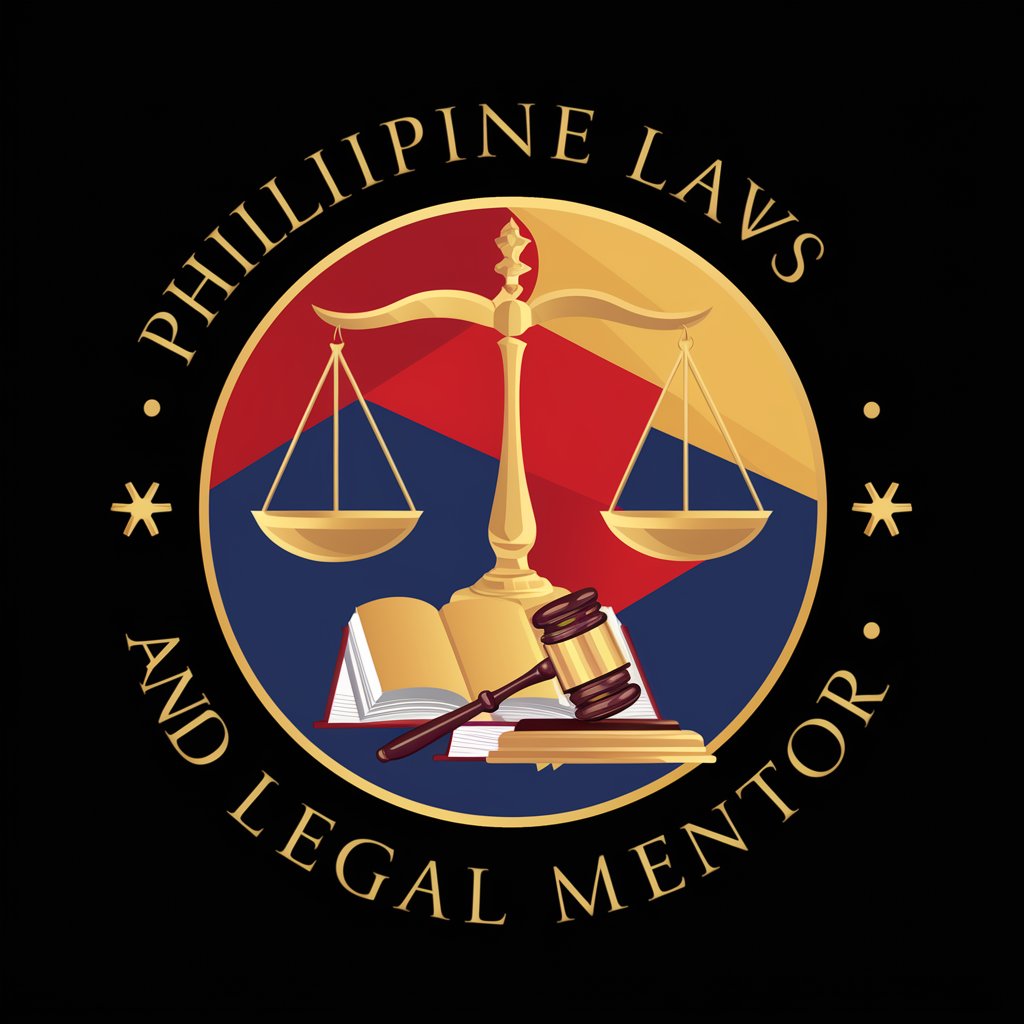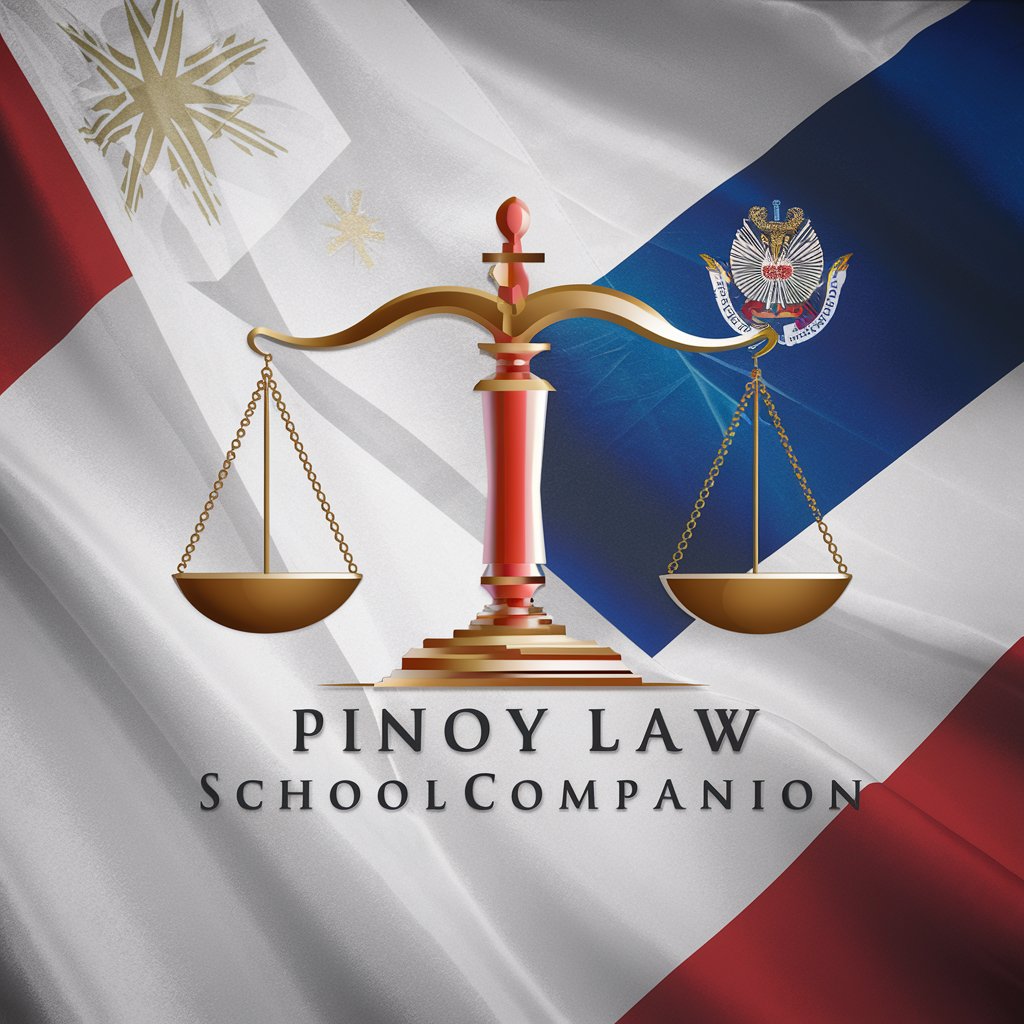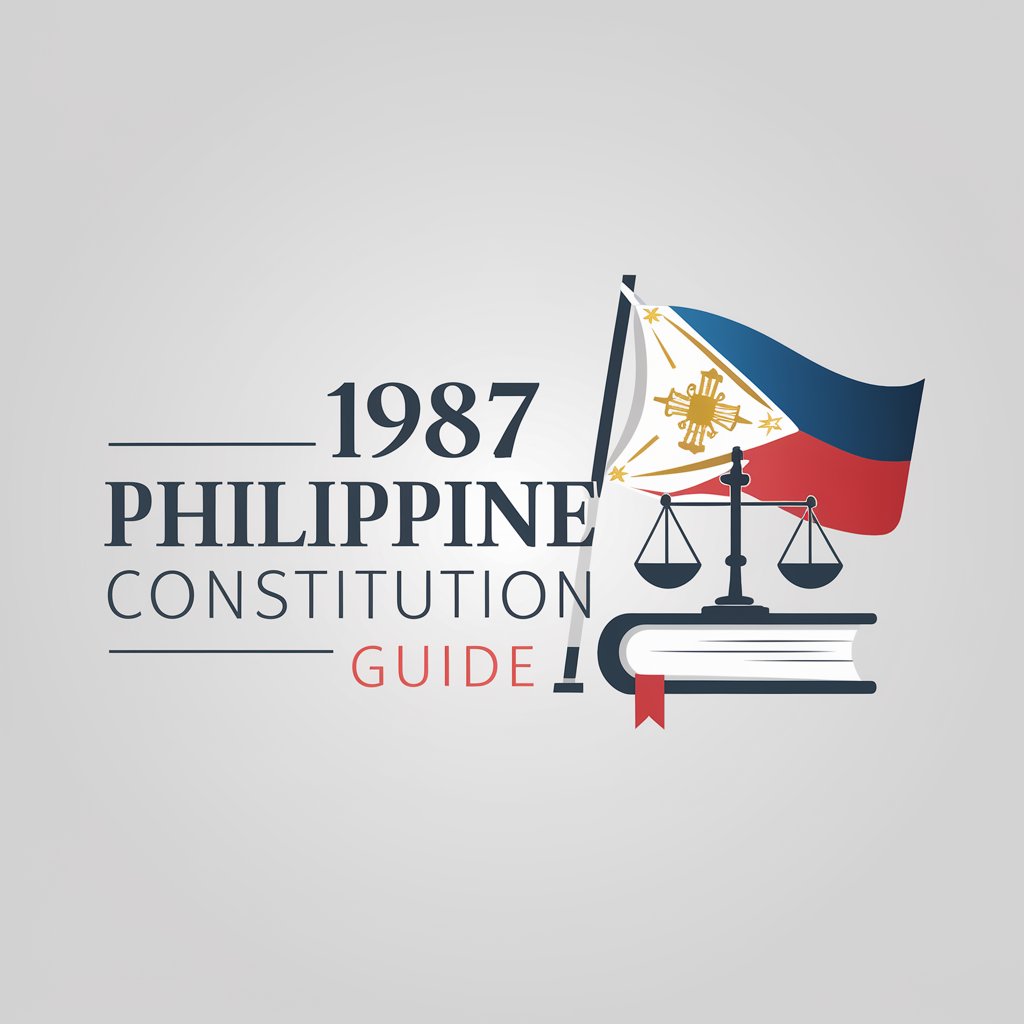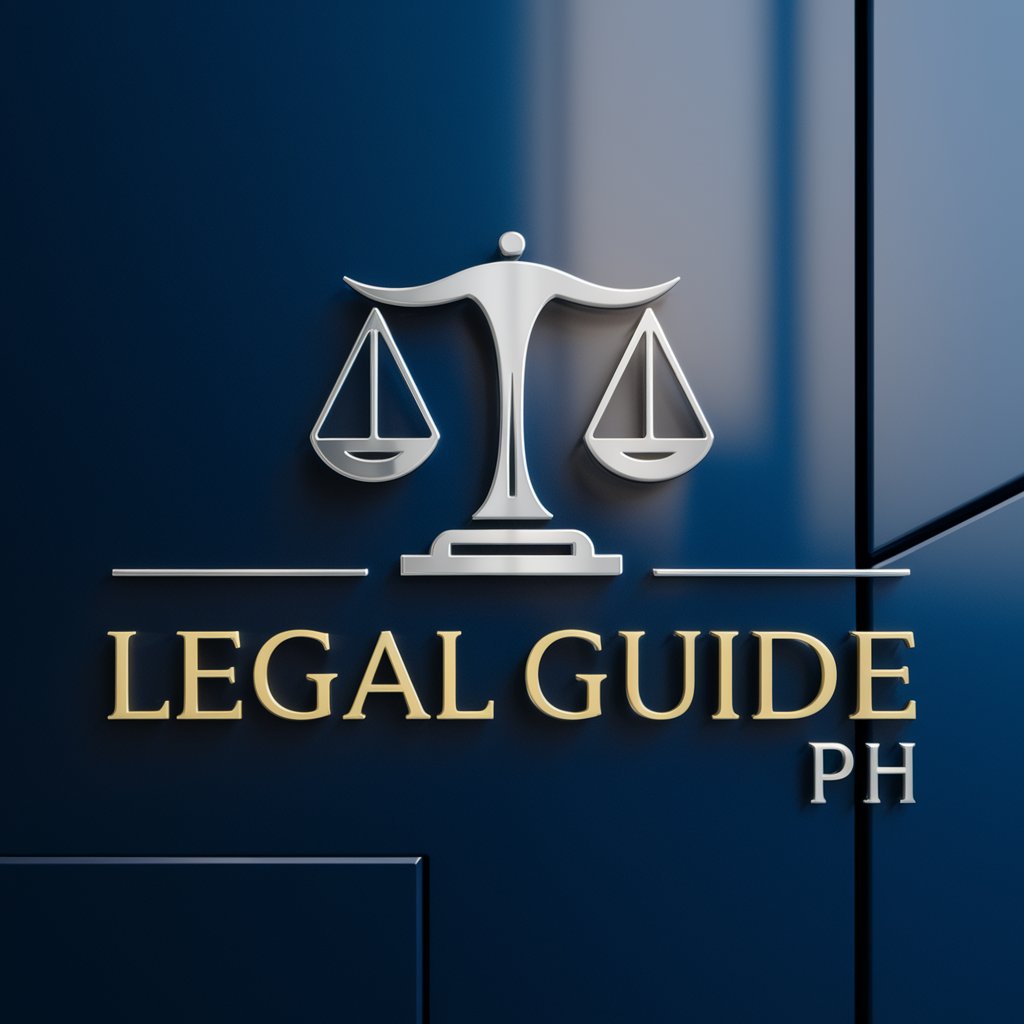
Philippine Legal Guide - Legal Information Access

Welcome! How can I assist you with Philippine law today?
Empowering legal inquiries with AI
What does the Family Code say about adoption?
Can you summarize the Consumer Act of the Philippines?
Explain the legal process for registering a business in the Philippines.
What are the labor laws regarding overtime pay in the Philippines?
Get Embed Code
Introduction to Philippine Legal Guide
Philippine Legal Guide is a specialized GPT designed to provide detailed information, insights, and guidance on the laws, legal precedents, and court resolutions of the Philippines. Developed to serve as a comprehensive resource, it aims to offer factual, unbiased legal information, making it an essential tool for individuals seeking to understand or navigate the Philippine legal system. Through its use of current and authoritative sources, particularly prioritizing access to reputable legal databases such as lawphil.net, it ensures the reliability of the information it provides. Examples of its application include explaining the nuances of family law, guiding entrepreneurs through the process of business registration, or interpreting recent Supreme Court decisions. Its design purpose is to bridge the gap between the general public and the often complex legal information, offering a more accessible way to gain legal knowledge. Powered by ChatGPT-4o。

Main Functions of Philippine Legal Guide
Legal Information Provision
Example
Providing detailed explanations of specific laws, such as the Family Code of the Philippines, including marriage requirements, adoption procedures, and the grounds for legal separation or annulment.
Scenario
A person considering legal action for annulment seeks to understand the process, requirements, and potential outcomes. Philippine Legal Guide offers a step-by-step guide, citing relevant laws and recent cases for reference.
Legal Precedent Analysis
Example
Analyzing significant Supreme Court decisions, their implications for future cases, and how they reflect changes in legal interpretations or policy.
Scenario
A law student researching the evolution of jurisprudence related to cyber libel uses the service to find cases, understand the court's reasoning, and explore its impact on freedom of speech.
Guidance on Legal Procedures
Example
Outlining the steps involved in filing a legal complaint, from drafting the initial document to the final resolution, including tips on evidence collection and presentation.
Scenario
A small business owner facing copyright infringement seeks information on how to protect their intellectual property rights. The guide provides a detailed procedure for filing a complaint, including necessary documents and possible legal remedies.
Ideal Users of Philippine Legal Guide Services
Legal Professionals
Lawyers, paralegals, and law students looking for a quick reference or a starting point for deeper research on specific laws, cases, or legal concepts. They benefit from the service's comprehensive legal database access and analysis, aiding in case preparation and study.
General Public
Individuals with little to no legal background who require guidance on personal, business, or property law matters. They benefit from the service's ability to simplify complex legal jargon into understandable language, helping them make informed decisions regarding legal issues.
Business Owners and Entrepreneurs
Entrepreneurs starting or running a business in the Philippines can access detailed guides on business law, registration processes, compliance requirements, and dispute resolution, helping them navigate legal obligations and protect their interests.

How to Use Philippine Legal Guide
1
Access the platform freely at yeschat.ai for an introductory trial without the need for registration or a ChatGPT Plus subscription.
2
Identify the legal issue or topic you need information on, such as specific laws, legal procedures, or court rulings in the Philippines.
3
Input your query in a clear and concise manner to ensure the most accurate and relevant legal information is provided.
4
Review the provided legal information, references, and precedents carefully to gain a comprehensive understanding of your inquiry.
5
For complex legal matters, consider the information as a starting point and consult with a legal professional for personalized advice and representation.
Try other advanced and practical GPTs
Scientific Insight
Deciphering Science with AI Precision

WHO-BIO Crafter
Crafting Unique Author Bios, Powered by AI

Sci-Fi Oracle
Exploring Sci-Fi Cinema Across Eras

Agente T-3000
Empowering Security Through AI

Letters from Santa
Bringing Christmas magic to life with AI-powered letters from Santa.

Mahakal Mystic
Unveiling the Mystical Dimensions of Mahakal and Shiv Ji

Real Estate Service Tool -New York City
Transforming NYC Real Estate with AI

Hreflang Goblin
AI-powered hreflang tag expert

Optimized SEO Assistant
Empower your SEO with AI-driven insights.

HoReCa Connoisseur
Empowering HoReCa with AI

Competitive Analysis Assistant
Empower your strategy with AI-driven insights

Théo Kobayashi, Designer
Transforming spaces with AI-driven design.
Frequently Asked Questions about Philippine Legal Guide
What legal topics does Philippine Legal Guide cover?
Philippine Legal Guide offers information on a wide range of legal topics, including but not limited to, family law, criminal law, labor law, corporate law, and property law, alongside legal procedures and court rulings in the Philippines.
Can Philippine Legal Guide provide legal advice?
While Philippine Legal Guide can offer comprehensive legal information and guidance, it cannot provide personalized legal advice. Users are encouraged to consult with a licensed attorney for advice specific to their legal situation.
How often is the information within Philippine Legal Guide updated?
The information is regularly updated to reflect the latest legal developments, laws, and court decisions in the Philippines. However, users should verify the currentness of the legal information with official sources or legal professionals.
Is Philippine Legal Guide accessible to non-lawyers?
Absolutely. The guide is designed to be user-friendly and accessible to both legal professionals and the general public, offering clear explanations of legal concepts and procedures.
How does Philippine Legal Guide ensure the accuracy of its information?
Philippine Legal Guide relies on reputable sources, including official legal texts, court decisions, and legal analysis, while also using the browsing tool to access up-to-date legal websites, prioritizing https://lawphil.net/ for Philippine laws and jurisprudence.





